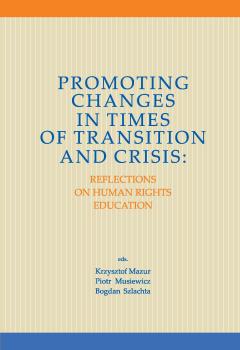Teaching about Rights, Freedom, and Democracy in Citizenship Education Classes in Bulgaria. Discourse on Practice .......... 373
Streszczenie
This paper presents the results of an empirical study of the views of Bulgarian teach-ers on citizenship education. Combined quantitative and qualitative analysis using Q-methodology resulted in outlining five groups of teachers with distinct views on the topic of citizenship education and teaching human rights. The Pragmatic Conservatives focus mainly on knowledge of the institutions and on preparing students to function in so-ciety. They see themselves as supervisors of the youth which they educate to become good, pragmatically adapted citizens with a healthy critical stance towards the current Bulgar-ian state apparatus. Human rights are usually presented in the context of responsibilities and discipline. The Deliberative Liberals teach mainly through dialogue and debate, they coach their students on the road to independent critical citizenship. The students’ rights and freedoms receive the most attention by this group of teachers. Their first and foremost priority is to inform students about their rights and to teach them how to defend them. The Local Social Guardians are mainly concerned with vulnerable students in disadvantaged situations, which seem to be left behind and feel marginalized in the modern Bulgarian state. These teachers take the responsibility to protect the students and to teach them basic survival skill based on adequate knowledge about society. They feel that it is important to teach students to claim their rights and not to be taken advantage of. The Personal Growth Facilitators are mainly concerned with the all-round development of students which also includes aesthetic, emotional and ecological aspects of citizenship. The teachers adhering to this view stress collective responsibility and community action much more than the other groups. Universal human rights and values are high on the agenda for these teachers. Finally, the Global Future Debaters are cosmopolitically- and globally-oriented, and see it as their task to prepare the citizens for the increasingly complex world of the future. They are the only ones explicitly oriented towards European values. This diversity has implications for human rights education, for citizenship education policy, teacher training, and curriculum development in post-communist and possibly other European countries.





